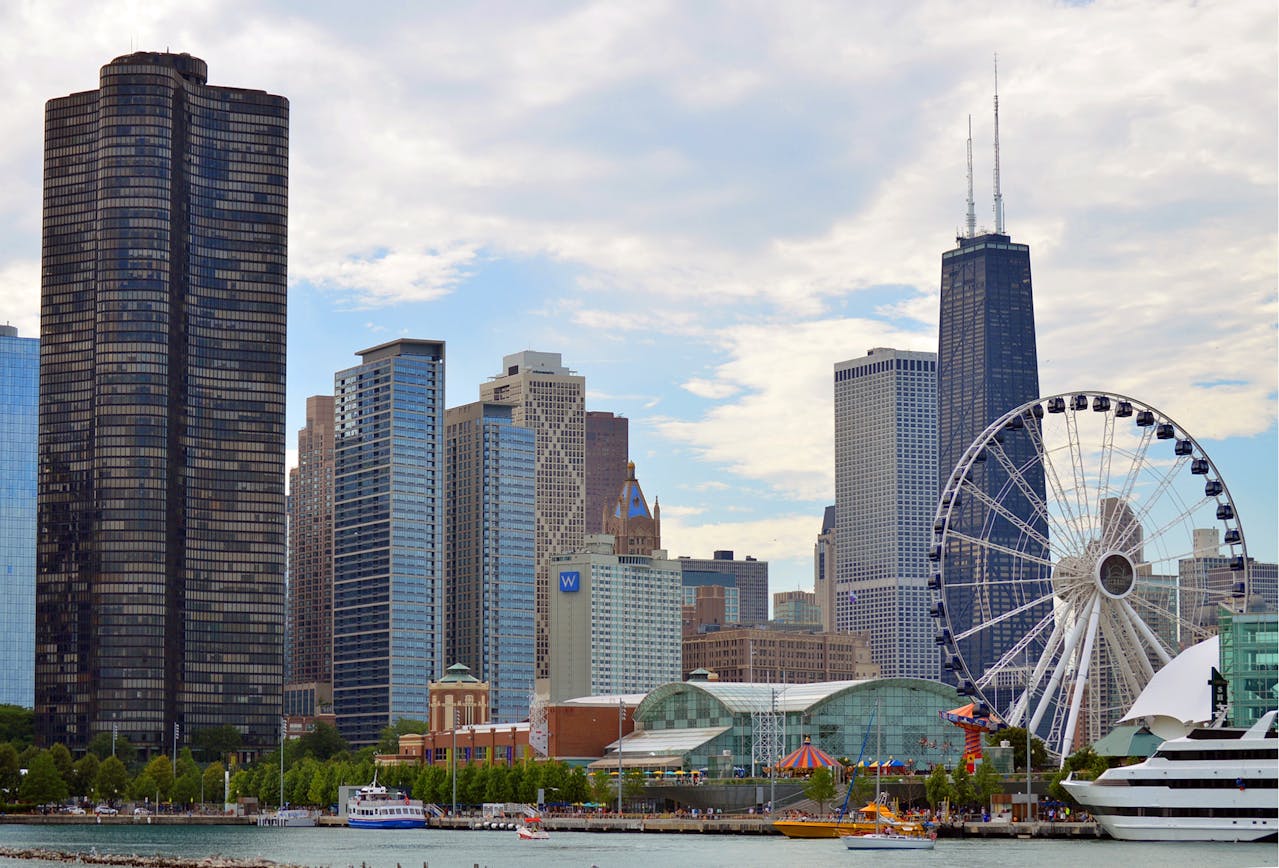Is Las Vegas affordable for retirees?
Las Vegas can be an affordable option for retirees, particularly due to its lack of state income tax, relatively lower cost of living compared to many major U.S. cities, and diverse housing options. Retirees can find affordable housing, including 55+ communities and apartments, and enjoy various free or low-cost entertainment and recreational activities. However, affordability depends on individual financial circumstances, lifestyle choices, and healthcare needs. While the city offers many benefits, retirees should consider factors such as rising housing costs and the potential need for air conditioning in the hot climate when evaluating Las Vegas as a retirement destination.

Las Vegas, Nevada, is widely recognized for its vibrant nightlife, entertainment, and casinos. However, beyond the glitz and glamour, the city is also home to a diverse and growing senior population. For many of these seniors, finding affordable housing is a significant concern. Low-income affordable senior living options in Las Vegas are essential for those on a fixed income, such as Social Security, who need safe and comfortable housing.
The Growing Need for Affordable Senior Housing
As of recent years, Las Vegas has seen a noticeable increase in its senior population. This growth is partly due to the influx of retirees attracted to Nevada’s favorable tax climate, affordable cost of living compared to neighboring states like California, and the availability of quality healthcare services. However, this surge has also intensified the demand for affordable housing options for seniors, particularly those with low incomes.
Many seniors face the dual challenge of fixed incomes and rising costs of living. Social Security benefits, which form the primary source of income for many retirees, have not kept pace with the rising costs of rent, healthcare, and daily expenses. Consequently, there is a significant need for housing that is both affordable and tailored to the unique needs of the elderly.
Types of Affordable Senior Living Options
Las Vegas offers a variety of housing options specifically designed to meet the needs of low-income seniors. These range from independent living communities to assisted living facilities and affordable apartment complexes. Each type caters to different levels of care and independence, allowing seniors to choose what best suits their needs and lifestyles.
Independent Living Communities: These are ideal for seniors who can live independently but prefer to reside in a community of their peers. Such communities often offer amenities like social activities, fitness centers, and communal dining options, creating a supportive and engaging environment. While they do not provide medical care or daily living assistance, they are a popular choice among active seniors.
Assisted Living Facilities: These facilities are designed for seniors who need assistance with daily activities such as bathing, dressing, and medication management. Assisted living facilities provide a higher level of care than independent living communities while still promoting as much independence as possible. They offer private or semi-private apartments and have staff available 24/7 to assist residents.
Affordable Apartment Complexes: These are standard apartments that have been designated for low-income seniors through various federal, state, and local housing programs. These programs often provide rental assistance, ensuring that seniors pay a portion of their income towards rent, making it affordable for those on a limited budget.
Key Programs Supporting Affordable Senior Housing
Several federal and state programs support the development and maintenance of low-income senior housing in Las Vegas:
Section 202 Supportive Housing for the Elderly: This program provides capital advances to private, nonprofit sponsors to finance the development of supportive housing for very low-income elderly individuals. It also provides rent subsidies for the projects to help make them affordable.
Low-Income Housing Tax Credit (LIHTC): This program provides tax credits to developers who build or rehabilitate rental housing for low-income individuals, including seniors. It is the largest source of federal support for affordable housing in the United States and plays a crucial role in developing affordable senior housing in Las Vegas.
Nevada Housing Division Programs: The Nevada Housing Division offers various programs aimed at increasing the availability of affordable housing across the state. This includes providing low-interest loans to developers, rental assistance programs, and housing vouchers for low-income individuals.
Challenges in Affordable Senior Living
Despite these programs, several challenges remain in ensuring adequate affordable housing for seniors in Las Vegas. The rising cost of land and construction, along with competition from more lucrative market-rate housing developments, often limits the availability of affordable options. Additionally, long waiting lists for subsidized housing and the high demand for senior-specific facilities can make finding immediate accommodations difficult.
Moreover, many seniors require not just affordable housing but also access to healthcare services, transportation, and social support networks, which are not always readily available in all housing options. Ensuring that affordable housing also provides access to these essential services is crucial in meeting the full spectrum of seniors’ needs.
Where do seniors live in Nevada?
Seniors in Nevada have various living options depending on their needs, lifestyle preferences, and financial situation. Many seniors choose to live in dedicated 55+ communities, particularly in cities like Las Vegas, Henderson, and Reno. These communities often offer amenities such as fitness centers, golf courses, swimming pools, and social activities tailored to active retirees.
Las Vegas, the state’s largest city, is a popular destination for seniors due to its warm climate, vibrant entertainment scene, and no state income tax. Within Las Vegas, neighborhoods like Summerlin and Sun City Anthem are well-known for their senior living communities that provide a mix of independent living, assisted living, and memory care options.
Henderson, a suburb of Las Vegas, also attracts many retirees. Known for its quiet, suburban feel and proximity to the Las Vegas Strip, Henderson offers a range of housing options from single-family homes to condominiums within senior communities.
In Northern Nevada, Reno and Carson City provide seniors with access to outdoor activities and a more temperate climate. These areas offer a slower pace of life, which appeals to many retirees. Senior housing options in these cities range from independent living communities to assisted living and skilled nursing facilities.
Senior Care Options
Las Vegas offers a range of senior care options to accommodate varying levels of need and personal preferences. These options are designed to support seniors’ health, safety, and well-being while promoting independence and quality of life. Here are some of the primary senior care options available in Las Vegas:
1. Independent Living Communities:
Independent living communities are ideal for seniors who do not require daily assistance but prefer to live in a community setting with other older adults. These communities often provide amenities such as housekeeping, meal services, transportation, social activities, and fitness programs, allowing seniors to enjoy a carefree lifestyle. Examples include Destinations Pueblo and Atria Sunlake Terrace.
2. Assisted Living Facilities:
Assisted living facilities cater to seniors who need help with daily activities like bathing, dressing, medication management, and mobility but do not require the intensive medical care provided by a nursing home. These facilities offer private or semi-private apartments, meals, personal care, and social activities. Notable options in Las Vegas include Pacifica Senior Living Regency and Legacy House of Centennial Hills.
3. Memory Care Facilities:
Memory care facilities are specialized communities that provide care for seniors with Alzheimer’s disease, dementia, or other cognitive impairments. These facilities have staff trained to handle the unique needs of residents with memory loss, offering a secure environment with structured activities and therapies designed to enhance cognitive function. Examples include Avenir Memory Care at Summerlin and The Homestead at Boulder City.
4. Skilled Nursing Facilities:
Skilled nursing facilities, also known as nursing homes, provide 24-hour medical care and supervision for seniors with significant health issues or those recovering from surgery or illness. These facilities have licensed nurses and medical professionals on staff to provide comprehensive care, including rehabilitation services like physical, occupational, and speech therapy. Examples include Advanced Health Care of Summerlin and Las Vegas Post Acute & Rehabilitation.
5. In-Home Care Services:
For seniors who prefer to age in place, in-home care services offer a flexible option. Caregivers visit the senior’s home to assist with personal care, housekeeping, meal preparation, medication reminders, and companionship. Home health care services, which provide medical care at home, are also available for seniors who need ongoing medical support. Companies like Visiting Angels and Comfort Keepers offer in-home care services in Las Vegas.
6. Respite Care:
Respite care provides temporary relief for primary caregivers, allowing them to take a break while ensuring their loved one receives the necessary care. This service can be offered in various settings, including senior care facilities or at home, depending on the family’s needs. Facilities like Merrill Gardens at Green Valley Ranch provide respite care options in Las Vegas.
7. Continuing Care Retirement Communities (CCRCs):
CCRCs offer a continuum of care from independent living to skilled nursing care within the same community. This option is ideal for seniors looking for a long-term solution that can adapt to their changing needs over time. Siena Hills is an example of a CCRC in the Las Vegas area.
Related Articles

How Seniors Can Save on Healthcare Costs
How to Plan for Medical Expenses in Retirement Planning for medical expenses in retirement involves several key steps. First, estimate potential healthcare costs, including

What is the Average Cost of Senior Living in Michigan?
Will Medicare pay for assisted living in Michigan? Choosing the right senior living option involves careful consideration of personal needs, financial resources

Introduction to Nursing Homes
Assisted living offers daily support and independence; nursing homes provide 24/7 medical care;

Symptoms & Signs of Depression in Seniors
What is the most common predictor of depression in older adults? The most common predictor of depression in older adults is chronic illness.





